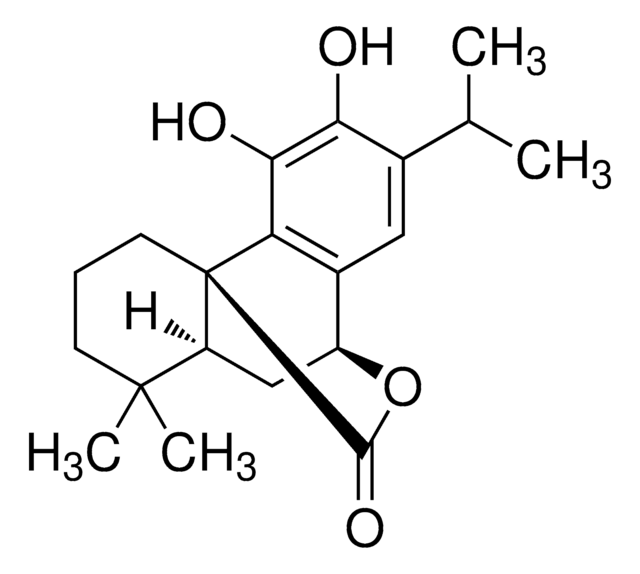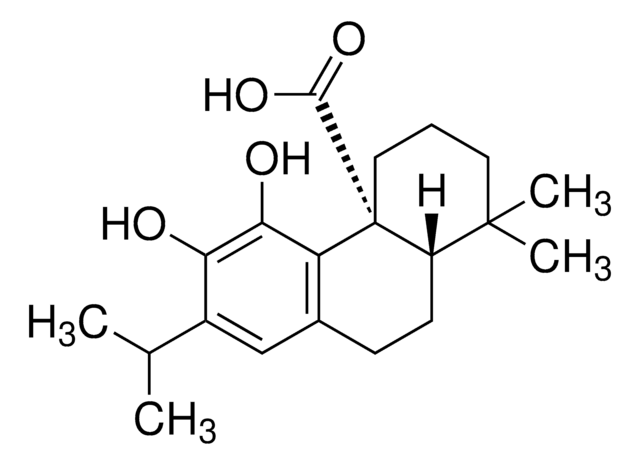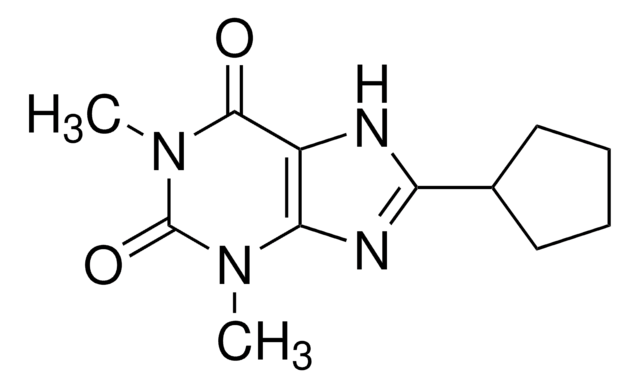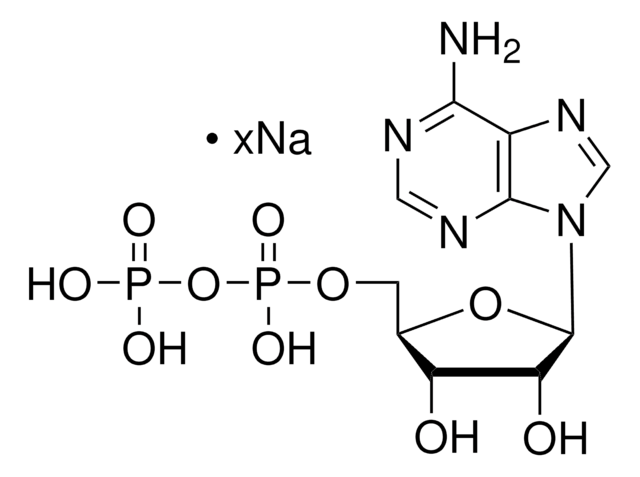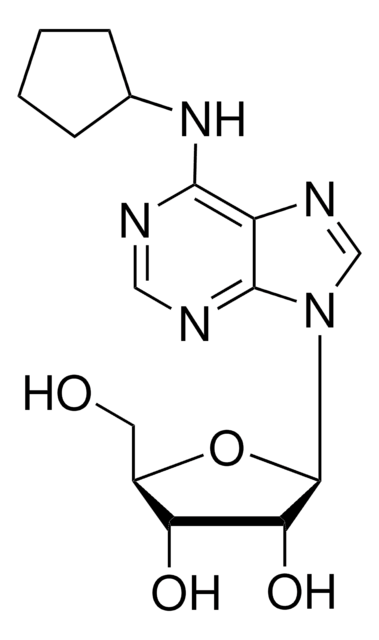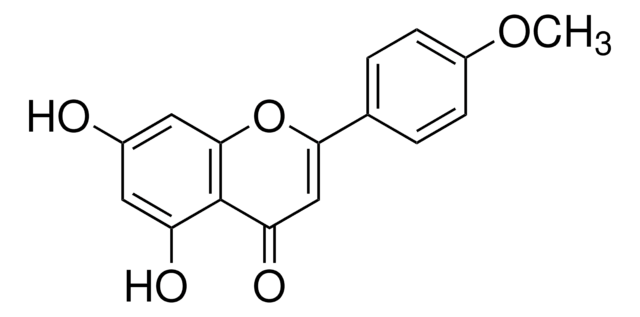추천 제품
생물학적 소스
Rosemarinus officinalis L.
양식
powder
응용 분야
metabolomics
vitamins, nutraceuticals, and natural products
배송 상태
dry ice
저장 온도
−20°C
SMILES string
CC(C)c1cc2[C@@H]3C[C@H]4C(C)(C)CCC[C@]4(C(=O)O3)c2c(O)c1O
InChI
1S/C20H26O4/c1-10(2)11-8-12-13-9-14-19(3,4)6-5-7-20(14,18(23)24-13)15(12)17(22)16(11)21/h8,10,13-14,21-22H,5-7,9H2,1-4H3/t13-,14-,20+/m0/s1
InChI key
XUSYGBPHQBWGAD-PJSUUKDQSA-N
유사한 제품을 찾으십니까? 방문 제품 비교 안내
일반 설명
Carnosol (CAR) is an ortho-diphenolic diterpene, extracted from the Mediterranean dietary herb Rosmarinus officinalis L. (rosemary). It was first isolated from the Salvia carnosa (Sage) plant. Carnosol is also a pro-electrophilic molecule.
애플리케이션
Carnosol has been used as an anti-cancer agent:
- to test its anti-cancer and anti-proliferative activities on cancer stem-like cells (CSCs) and Glioblastoma multiforme (GBM) cells
- to inspect its anti-carcinogenic effects on nineteen genes involved in up-and down-regulation of different genetic carcinogenesis pathways and on HeLa cells in human cervical cancer model
- as a reference standard to identify and quantify the metabolites of rosemary extract using liquid chromatography coupled to tandem mass spectrometry (LC/ESI-MS/MS)
생화학적/생리학적 작용
A phenolic diterpene with antioxidant and anticarcinogenic activities.
Carnosol together with carnosic acid (CA) accounts for 90% of the antioxidant activity of rosemary leaves. It exerts neuroprotective properties and protects against neuroinflammation, and oxidative stress-induced brain damage under chronic stress conditions. Carnosol is a strong chemo-therapeutic agent studied for several types of cancer like breast, leukemia, skin, prostate, and colon. It is also an antimicrobial agent.
신호어
Warning
유해 및 위험 성명서
예방조치 성명서
Hazard Classifications
Skin Sens. 1
Storage Class Code
11 - Combustible Solids
WGK
WGK 3
Flash Point (°F)
Not applicable
Flash Point (°C)
Not applicable
이미 열람한 고객
The anticancer molecular mechanism of Carnosol in human cervical cancer cells: An in vitro study
Hafidha RR and Abdulamirb AS
Asia-Pacific Journal of Molecular Biology and Biotechnology, 88-98 (2020)
Marcos Roberto de Oliveira
Molecular neurobiology, 53(9), 6155-6168 (2016-11-01)
Carnosic acid (CA) and carnosol are the major diterpenes found in Rosmarinus officinalis (rosemary), a culinary spice. CA and carnosol account for over 90 % of its anti-oxidant activity in rosemary leaves. The diterpenes exert anti-oxidant, anti-inflammatory, and anti-carcinogenic activities, and
Saeed Samarghandian et al.
BMC complementary and alternative medicine, 17(1), 249-249 (2017-05-06)
Oxidative stress through chronic stress destroys the brain function. There are many documents have shown that carnosol may have a therapeutic effect versus free radical induced diseases. The current research focused the protective effect of carnosol against the brain injury
N Mulinacci et al.
Talanta, 85(1), 167-176 (2011-06-08)
The Rosmarinus officinalis L. is widely known for its numerous applications in the food field but also for the increasing interest in its pharmaceutical properties. Two groups of compounds are mainly responsible for the biological activities of the plant: the
Yosei Tamaki et al.
Planta medica, 76(7), 683-688 (2009-11-27)
In our previous studies, we have reported that carnosic acid (CA) and carnosol (CS) originating from rosemary protects cortical neurons by inducing phase 2 enzymes, the induction of which was initiated by activation of the Keap1/Nrf2 pathway , , .
자사의 과학자팀은 생명 과학, 재료 과학, 화학 합성, 크로마토그래피, 분석 및 기타 많은 영역을 포함한 모든 과학 분야에 경험이 있습니다..
고객지원팀으로 연락바랍니다.